Hyundai i30 vs Peugeot 2008 – Which one offers the better deal?
Both models have their strengths – but which one suits you more?
Compare performance, efficiency, price and space directly: Hyundai i30 or Peugeot 2008?
Costs and Efficiency: Price and efficiency are often the first things buyers look at. Here it becomes clear which model has the long-term edge – whether at the pump, the plug, or in purchase price.
Hyundai i30 has a hardly perceptible advantage in terms of price – it starts at 24000 £, while the Peugeot 2008 costs 24500 £. That’s a price difference of around 471 £.
Fuel consumption also shows a difference: Peugeot 2008 manages with 5 L and is therefore to a small extent more efficient than the Hyundai i30 with 5.70 L. The difference is about 0.70 L per 100 km.
Engine and Performance: Power, torque and acceleration say a lot about how a car feels on the road. This is where you see which model delivers more driving dynamics.
When it comes to engine power, the Peugeot 2008 has a somewhat edge – offering 156 HP compared to 140 HP. That’s roughly 16 HP more horsepower.
In acceleration from 0 to 100 km/h, the Peugeot 2008 is somewhat quicker – completing the sprint in 8.30 s, while the Hyundai i30 takes 9.60 s. That’s about 1.30 s faster.
In terms of top speed, the Peugeot 2008 performs barely noticeable better – reaching 206 km/h, while the Hyundai i30 tops out at 197 km/h. The difference is around 9 km/h.
There’s also a difference in torque: Peugeot 2008 pulls slight stronger with 270 Nm compared to 253 Nm. That’s about 17 Nm difference.
Space and Everyday Use: Cabin size, boot volume and payload all play a role in everyday practicality. Here, comfort and flexibility make the difference.
Both vehicles offer seating for 5 people.
In curb weight, Peugeot 2008 is hardly perceptible lighter – 1263 kg compared to 1291 kg. The difference is around 28 kg.
In terms of boot space, the Peugeot 2008 offers barely noticeable more room – 434 L compared to 395 L. That’s a difference of about 39 L.
In maximum load capacity, the Peugeot 2008 performs to a small extent better – up to 1467 L, which is about 166 L more than the Hyundai i30.
When it comes to payload, Hyundai i30 minimal takes the win – 509 kg compared to 460 kg. That’s a difference of about 49 kg.
Who comes out on top?
Overall, the Peugeot 2008 shows itself to be edges out slightly and secures the title of DriveDuel Champion.
It convinces with the more balanced overall package and proves to be the more versatile choice for everyday use.
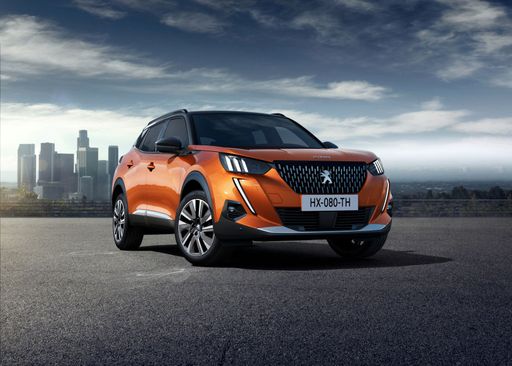
Peugeot 2008
Hyundai i30
The Hyundai i30 stands out in the hatchback segment with its sleek design and modern features. It offers a comfortable ride with a well-crafted interior that caters to both driver and passengers. With its emphasis on safety and technology, the i30 provides a balanced driving experience suitable for urban and suburban environments.
details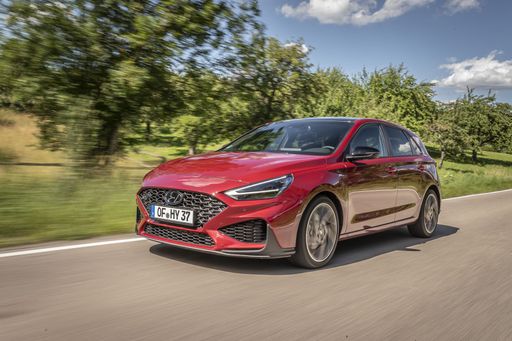 @ hyundai.news
@ hyundai.news
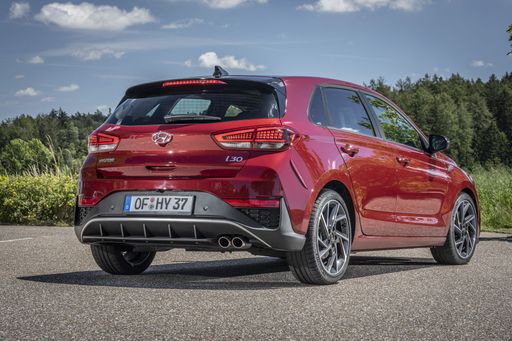 @ hyundai.news
@ hyundai.news
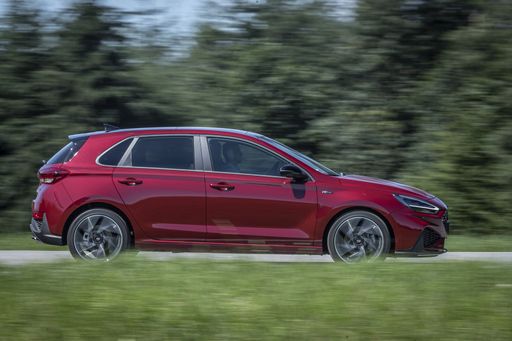 @ hyundai.news
@ hyundai.news
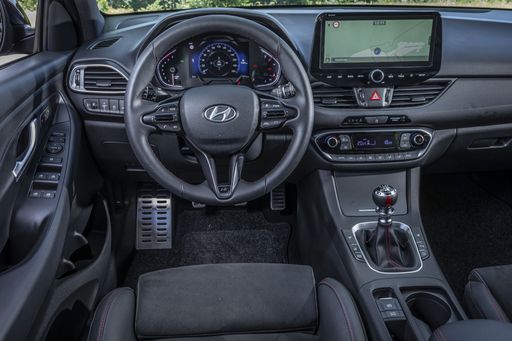 @ hyundai.news
@ hyundai.news
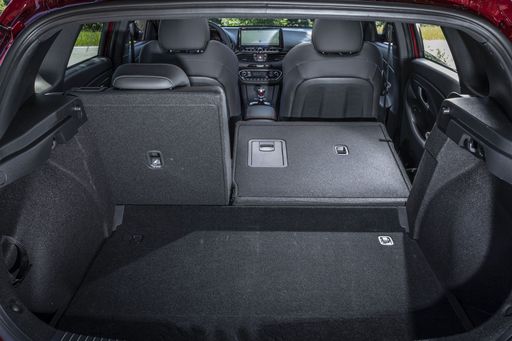 @ hyundai.news
@ hyundai.news
Peugeot 2008
The Peugeot 2008 stands out in the compact SUV market with its blend of striking design and practical functionality. It offers a comfortable ride with a sophisticated interior that exudes quality, making it ideal for both urban commutes and longer journeys. The model's efficient performance and range of modern features further enhance its appeal to a diverse range of drivers.
details @ media.stellantis.com
@ media.stellantis.com
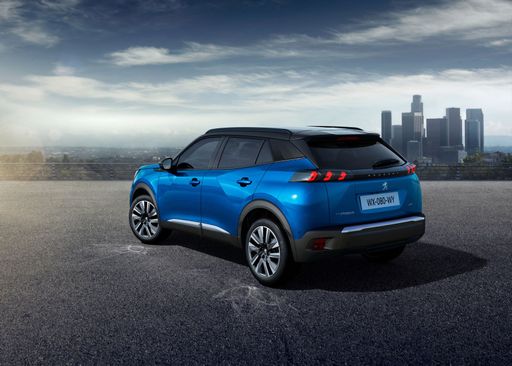 @ media.stellantis.com
@ media.stellantis.com
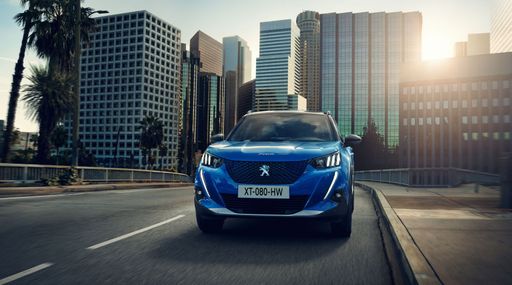 @ media.stellantis.com
@ media.stellantis.com
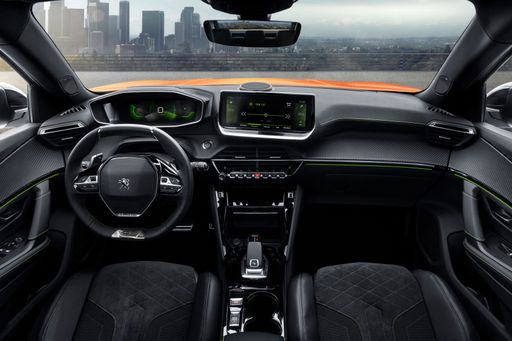 @ media.stellantis.com
@ media.stellantis.com

|

|
|
|
|
Costs and Consumption |
|
|---|---|
|
Price
24000 - 29300 £
|
Price
24500 - 40300 £
|
|
Consumption L/100km
5.7 - 6 L
|
Consumption L/100km
5 - 6.2 L
|
|
Consumption kWh/100km
-
|
Consumption kWh/100km
15.50 kWh
|
|
Electric Range
-
|
Electric Range
406 km
|
|
Battery Capacity
-
|
Battery Capacity
51 kWh
|
|
co2
130 - 136 g/km
|
co2
0 - 140 g/km
|
|
Fuel tank capacity
50 L
|
Fuel tank capacity
44 L
|
Dimensions and Body |
|
|---|---|
|
Body Type
Hatchback
|
Body Type
SUV
|
|
Seats
5
|
Seats
5
|
|
Doors
5
|
Doors
5
|
|
Curb weight
1291 - 1407 kg
|
Curb weight
1263 - 1623 kg
|
|
Trunk capacity
395 L
|
Trunk capacity
434 L
|
|
Length
4340 mm
|
Length
4304 mm
|
|
Width
1795 mm
|
Width
1770 mm
|
|
Height
1455 mm
|
Height
1523 mm
|
|
Max trunk capacity
1301 L
|
Max trunk capacity
1467 L
|
|
Payload
463 - 509 kg
|
Payload
407 - 460 kg
|
Engine and Performance |
|
|---|---|
|
Engine Type
Petrol, Petrol MHEV
|
Engine Type
Petrol, Electric, Petrol MHEV
|
|
Transmission
Manuel, Automatic
|
Transmission
Manuel, Automatic
|
|
Transmission Detail
Manual Gearbox, Dual-Clutch Automatic
|
Transmission Detail
Manual Gearbox, Reduction Gearbox, Automatic Gearbox, Dual-Clutch Automatic
|
|
Drive Type
Front-Wheel Drive
|
Drive Type
Front-Wheel Drive
|
|
Power HP
100 - 140 HP
|
Power HP
101 - 156 HP
|
|
Acceleration 0-100km/h
9.6 - 13.1 s
|
Acceleration 0-100km/h
8.3 - 10.9 s
|
|
Max Speed
178 - 197 km/h
|
Max Speed
150 - 206 km/h
|
|
Torque
172 - 253 Nm
|
Torque
205 - 270 Nm
|
|
Number of Cylinders
3 - 4
|
Number of Cylinders
3
|
|
Power kW
74 - 103 kW
|
Power kW
74 - 115 kW
|
|
Engine capacity
998 - 1482 cm3
|
Engine capacity
1199 cm3
|
General |
|
|---|---|
|
Model Year
2024
|
Model Year
2023 - 2025
|
|
CO2 Efficiency Class
D, E
|
CO2 Efficiency Class
D, A, E, C
|
|
Brand
Hyundai
|
Brand
Peugeot
|
What drive types are available for the Hyundai i30?
Available configurations include Front-Wheel Drive.
The prices and data displayed are estimates based on German list prices and may vary by country. This information is not legally binding.
